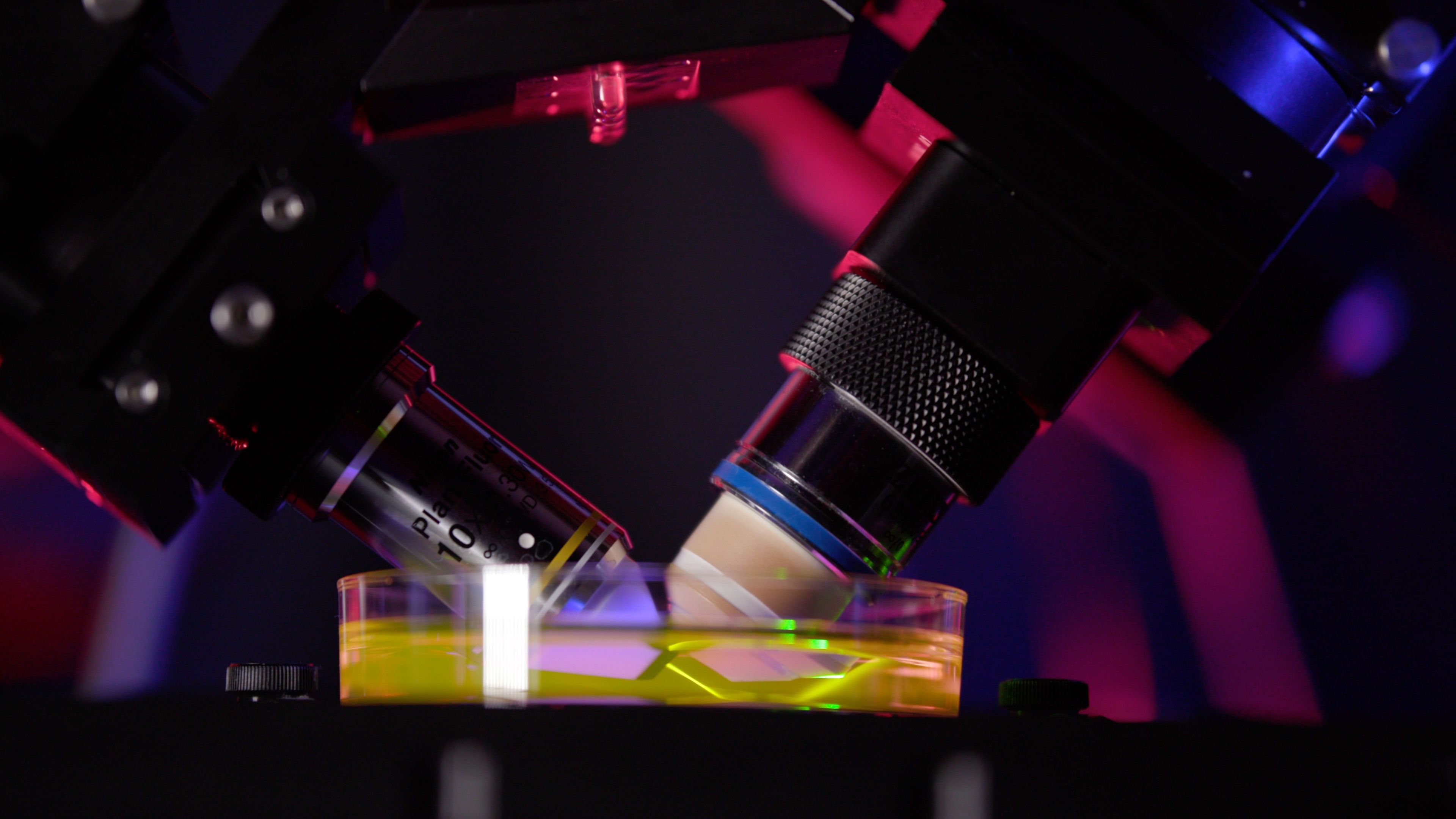Our Research
Our multidisciplinary department houses expertise in fundamental science, engineering and mathematics fields, with an overarching drive to deliver real impact in the areas of sustainability and healthcare.

We use fundamental science to solve some of the world's biggest challenges.
Our multidisciplinary department houses expertise in fundamental science, engineering and mathematics fields, with an overarching drive to deliver real impact in the areas of sustainability and healthcare.
We believe that adequate funding for energy transition research is crucial. Our Department is committed to the University's goal of maximising our contribution towards achieving a resilient and sustainable zero-carbon world. We actively pursue this goal through the development of technologies, materials, and processes that enable a rapid and efficient shift away from fossil fuel based energy production and consumption. We do not conduct any research in our Department on technologies for the extraction or production of fossil fuels.
Our Research Themes
Find a Research Group
© Martin Bond
© Martin Bond
Our Research Groups
We have over 30 research groups in our Department, exploring topics across biology, materials, reactions and processes, sensor technologies and big data.
Research Videos
See the impact of our research
How Do We Provide Affordable, Renewable Energy to Meet Demand?
How Do We Develop Treatments for Hard to Cure Cancers?
How Do We Design New Materials to Revolutionise Medical Treatment?
How Do We Make Chemical Processes Sustainable?
How Do We Develop New Sustainable Fuels to Power Our Society?
Cambridge CARES
The Cambridge Centre for Advanced Research and Education in Singapore (CARES) is the University of Cambridge’s first overseas research centre. Cambridge CARES is based in Singapore, but the department is involved in multiple projects, including research focusing on decarbonisation of marine transport and chemicals manufacture, and multiple projects on digital transformation (in healthcare, research and manufacture). Departmental researchers have also spun out multiple companies from CARES.
CARES is led by four co-directors, including CEB's Prof Dame Lynn Gladden (research strategy) and Prof Alexei Lapkin (entrepreneurship).
Credit: University of Cambridge, CARES
Enterprise and Partnerships
Invention to commercialisation
We have long recognised the need for a greater level of commercialisation of public and charity funded research, as well as for educational programmes focused on instilling the enterprise mindset in future generations.
We are an active collaborative partner for joint research with industry and also recognise that impact can arise from our fundamental research in processes, healthcare and materials, via different routes and pathways. We therefore focus our efforts on building:
- Industrial links via consultancy, studentships, contracts and longer term research programmes, which can lead to improved processes, thereby enhancing productivity, competitiveness and wealth creation
- Entrepreneurship and supporting the creation of spin-outs, with a particular focus on inclusive innovation, and social and ethical entrepreneurship
- Clinical relationships resulting from a combination of entrepreneurial and collaborative activities
Current partnerships
Innovation Centre in Digital Molecular Technologies
We have close links with the Innovation Centre in Digital Molecular Technologies, an open innovation Centre of Excellence co-funded by centre members. The iDMT is an incubator supporting UK SMEs in the transformation of chemistry into the digital domain. It is directed by our Professor of Sustainable Reaction Engineering - Professor Alexei Lapkin - and involves a number of our researchers, working on collaborative projects that link SMEs with academia and large companies to exploit the power of artificial intelligence and machine learning in molecular sciences, technologies and products.
Cambridge Infinitus Research Centre (CIRCE)
CIRCE was established through a collaboration between the Department of Chemical Engineering and Biotechnology and the Chinese company Infinitus, with the aim of analysing the biological activity of natural compounds from traditional Chinese medicines. Although many modern medicines derive from natural products, the cellular and molecular details are poorly understood. The major focus of CIRCE is to understand the molecular regulators of protein homeostasis in cells and model organisms to provide potential strategies for the treatment of neurodegenerative diseases.
AstraZeneca
We have a number of ongoing projects across multiple research groups with AstraZeneca on biopharmaceutical research to identify and address fundamental questions and challenges in bioprocessing. Our joint research programme was established in 2014-15 to foster a novel collaborative culture between the University of Cambridge and the Cambridge base of one of the world's leading biologics developers with the aim that researchers at both institutions will benefit from the freedom to think creatively and differently.
Partnership opportunities
We welcome enquiries from industry, and others, about possible collaborations to tackle particular problems or research areas, whether these are suited to a short consultancy, a small experimental programme or to a longer term study requiring a major research effort. Our staff members are always willing to form multi-disciplinary teams, with the relevant skills, which can be brought to bear on the problem of interest.
We offer flexible funding, intellectual property ownership, timing, personnel and management options to suit our client companies. Projects can either be funded directly, or a range of options exist whereby industrial effort, in cash or kind, is substantially leveraged by public funding. We also have the ability to locate and consult other experts within the University of Cambridge or elsewhere in academia, as needed.
Short research or consultancy programmes
We accept commissions to undertake an agreed paper study or programme of research, spanning typically a few days or weeks. For example, this may involve evaluating materials using a particular technique or instrument, or to examine the potential benefits of a more extensive research programme.
Research projects/programmes
Industrial sponsors of research programmes are invited to fund studies at postgraduate or postdoctoral level.
Pt II Chemical Engineering and Biotechnology research projects
You could help to devise and sponsor a final year project on our undergraduate course, which is undertaken by our fourth-year undergraduates, under the supervision of a member of our staff.
MPhil in Bioscience Enterprise and MPhil in Advanced Chemical Engineering
We welcome the involvement of companies in our Master's education programmes. Companies and their executives frequently contribute to course design, or lecture to and mentor students. Please see our MBE and ACE MPhil pages to find out more. Contact Dr Sarah Rough (MPhil ACE) or our MBE team for more information.
PhD research programme
A PhD research project is conducted by a student with a good honours degree, working full-time for three years, under the supervision of a member of staff who will be an expert in the field. We welcome the involvement of companies in supporting a PhD research project - please contact the appropriate academic lead of a relevant research group for more information.
Partner with CUCES: the Cambridge University Chemical Engineering Society
Cambridge University Chemical Engineering Society (CUCES) is a student-run society with over 300 members, consisting of both undergraduate and postgraduate students.
CUCES’s mission is to facilitate engagement between industry professionals and chemical engineering students by organising networking and social events through which students can learn about the exciting projects and opportunities that companies have to offer. If you would like to work with CUCES on a careers event, workshop or other engagement, contact them on Facebook or Instagram








